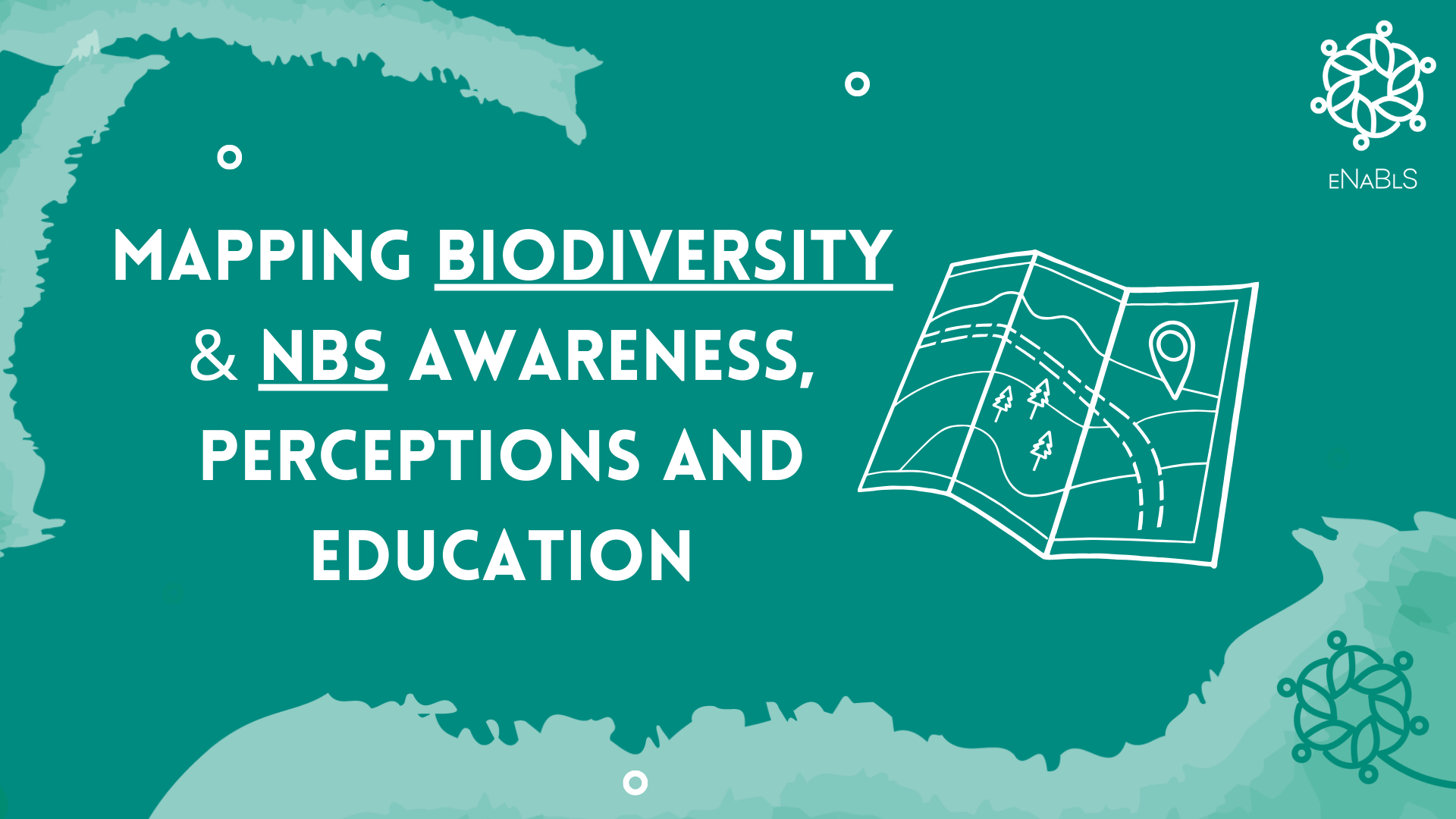14 October 2024

Written by: Ann-Catrin Fender, Sabiha Gökçen Zwack, Anželika Dautartė, Audrone Ispiryan
In ᴇNᴀBʟS, we are starting our common journey by looking at the European landscape of biodiversity and NBS, especially in higher education.
One of the main goals of this basic step is to identify the presence of NBS in universities and technical vocational education and training institutions (TVET) in both biodiversity-related and other disciplines. To achieve this goal, we conducted interviews with more than 70 experts all around Europe in Summer 2024. The majority of the experts who participated in our interviews were from universities. Additionally, more than 90 teaching and administrative staff at the higher education institutions and TVET organisations participated in our survey to share insights on their curricula.
We collected information on online platforms and open educational resources on NBS with biodiversity/NBS educational material besides policy documents, reports from governmental institutions/projects, protocols and standards. It turns out that Europe is a prominent contributor to the funding of initiatives aimed at addressing biodiversity loss through the utilisation of Nature-Based Solutions, demonstrating a persistent and expanding dedication to this domain. The research objectives on NBS encompass a range of interrelated fields, including climate change, biodiversity, agriculture, and forestry. The primary subject areas within these fields are ecosystem services, ecosystem restoration, conservation, sustainability, carbon sequestration, and a circular economy.
Existing networking and collaboration schemes are observed to identify pathways and obstacles for multidisciplinary knowledge transfer among researchers and professionals across different disciplines, showing good practices. The results of our research highlight the growing importance of interdisciplinary collaboration in addressing biodiversity loss and the integration of NBS. Experts across Europe, particularly in the fields of environmental engineering and sustainable development, emphasize the need for educational institutions to adopt systems thinking and engage students in hands-on projects. Many respondents noted that NBS require not only technical expertise but also social and economic perspectives to ensure impactful solutions. These findings suggest that universities and TVET institutions can play a critical role in equipping the next generation with the skills and knowledge necessary to implement NBS in real-world scenarios.
Moreover, we aim to give an updated overview of the current awareness, perceptions and concerns on biodiversity and NBS positioning in society as a whole with an emphasis on students and the youth. To support us with this goal and to share their voices, more than 1000 people, not only from European countries but from all over the world, participated in our survey. Our preliminary results show that the participants have a wide range of educational levels and occupations. While the majority of the participants were employed, more than 170 students took part in our survey and more than 300 people with an age below 30 years participated.
With all these analyses, we plan to reveal current lacks and discrepancies regarding biodiversity loss and NBS especially in higher education. Keep connected with ᴇNᴀBʟS! The complete results from the analysis will be out soon!
14 October 2024
